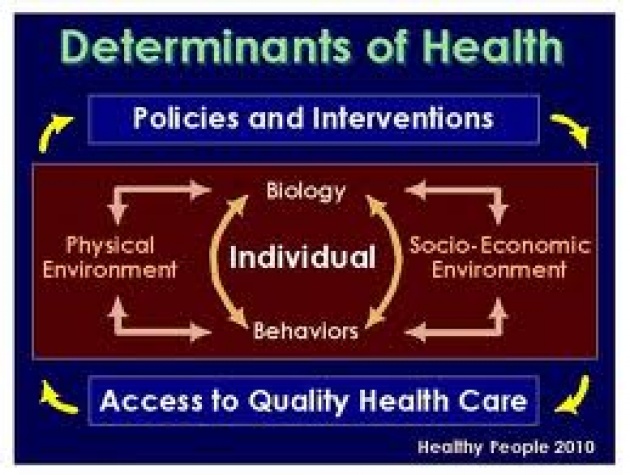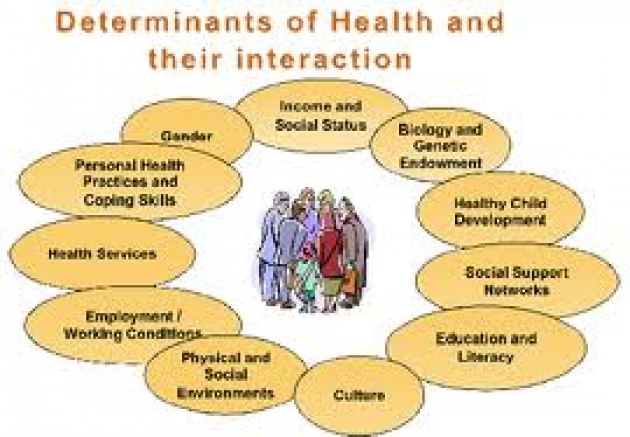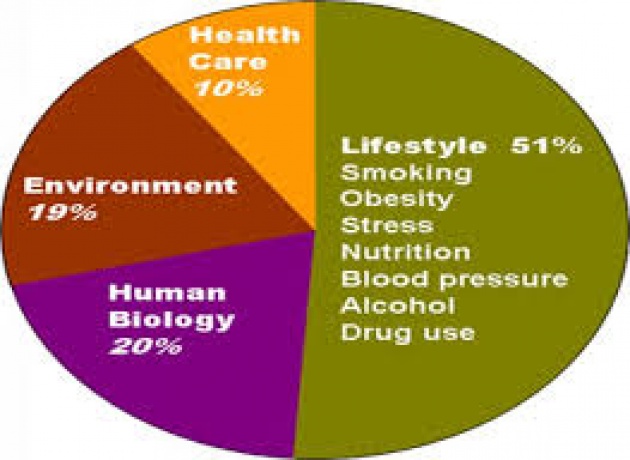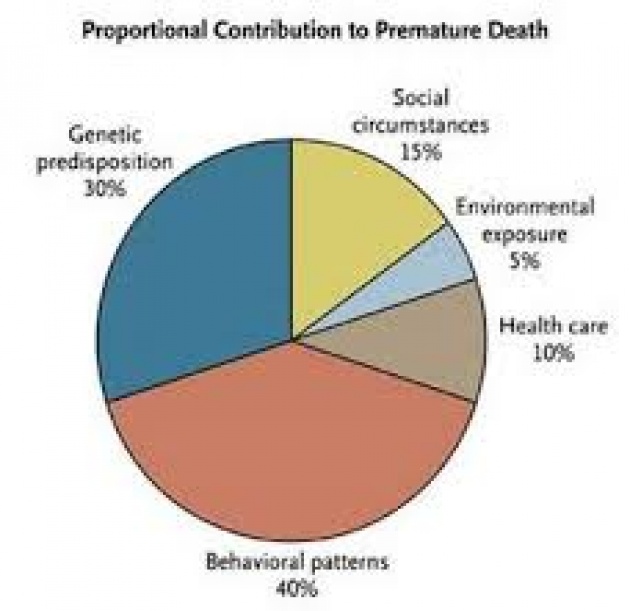
Normally, the situation through which a person lives is very significant for his / her health level and the life standard. this has been largely experienced that health can be attained by the enhancement and following of the guiding principles of health science as well as by the endeavors and wise lifestyle preferences of a given individual or culture. As per dictates of WHO, the major parameters of health entail the socio-economic and physical environment, the concerned individual's genetics.

The key features that have been learnt to ascertain if a given community of people is healthy or not, might include:
- Socio-economic position
- Social support availability
- Education and awareness
- Nature of health-treatment
- Child development care
- Medical services available
- Gender & sexual practices

A considerable number of surveys and researches conducted on various organizations and situations study the relation between health and an array of factors, e.g. environments, lifestyles, and health policy like the 1974 Lalonde report from Canada and a succession of World Health Reports of the WHO that concentrated on global health problems such as availability of health care and the outcome of the programs launched to improvepublic health, particularly in the third world countries.

The idea of the "health field" contrasting from that of the medical care hailed from the Lalonde report from Canada which signified three co-dependent sectors as chief evaluators of a person's health. They are:
- Lifestyle: the sum of individual preferences, in which the individual's personal discretion matters, have been found to have a say or cause disease or death;
- Environment: everything pertaining to health is outside of the human body and which is beyond human control;
- Bio-medical: all aspects of health, physical and mental, developed within the human body as influenced by genetic make-up.


The enhancement factor of health is maintained by changing sets of bodily, mental and social happiness factors that are collectively known as the "health triangle". The World Health Organization's 1986 Ottawa Charter for Health Promotion elaborated the fact that health is not merely a condition; nevertheless, it is 'a reserve for day-to-day life, not the point of living. Health is a constructive idea underlining communal and personal support in addition to one's physical potentials.'




